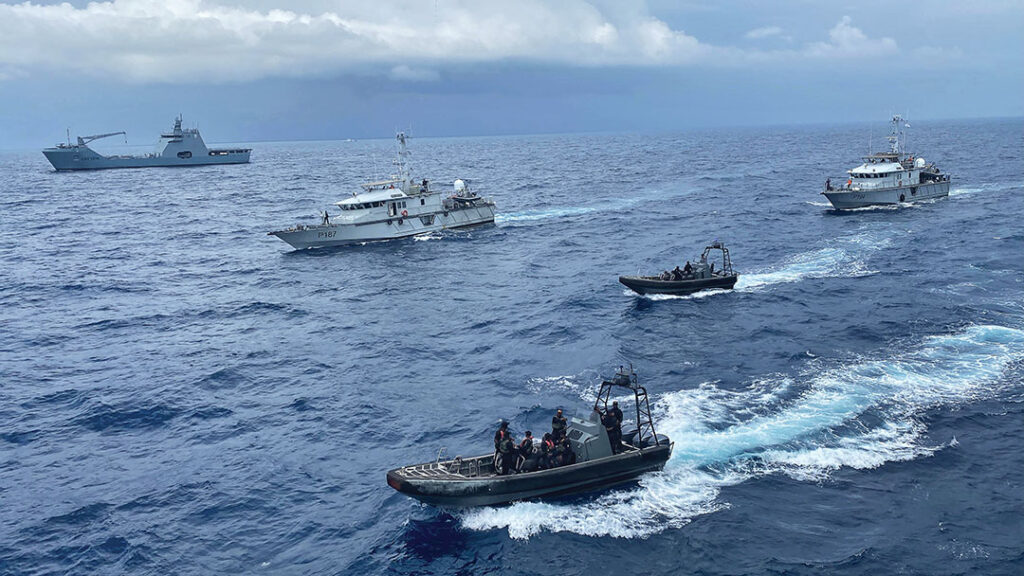Too often, maritime security takes a back seat to land-based concerns. It’s easy for the problems roiling the vast seas to remain out of sight and out of mind.
Many African countries are realizing they no longer can afford to take this position. The blue economy is an engine for growth, responsible for $300 billion in commerce and supporting 50 million jobs. Oceans are critical to food security with 200 million African people relying on seafood for part of their diet.
But this resource is under attack. Foreign trawlers take advantage of areas of weak enforcement to decimate fish stocks. The Gulf of Guinea is a global hot spot for illegal fishing with supertrawlers, largely Chinese, flouting laws and costing the region as much as $9.4 billion annually.
Other crimes, such as drug trafficking, hazardous waste disposal, piracy and smuggling, thrive in areas where criminals know there is little risk of being stopped by a law enforcement vessel.
In response to these threats, navies with limited budgets are getting creative. New technology and strengthened partnerships help share the burden across borders and maximize resources. Countries are using low-cost maritime domain awareness tools like the web-based SeaVision platform to identify suspicious vessels and hot spots of illegal activity. Regional frameworks such as the Djibouti Code of Conduct and the Yaoundé Code of Conduct are facilitating instant information-sharing, regional alerts and joint action. Tools such as aerial and sea drones are serving as force multipliers for thinly stretched naval forces. Artificial intelligence helps officials decipher the information they receive and act on it.
The blue economy depends on improved security at sea. As security professionals look to build a stable and prosperous future, they know they must protect the continent’s fisheries, trade routes, beaches and ports. The ability to do this is now within reach. The determination is there. The partnerships are in place. The tools are available. If navies across Africa can continue to work together and build on this maritime momentum, they can help unleash the economic potential of the ocean and protect precious resources for future generations.

